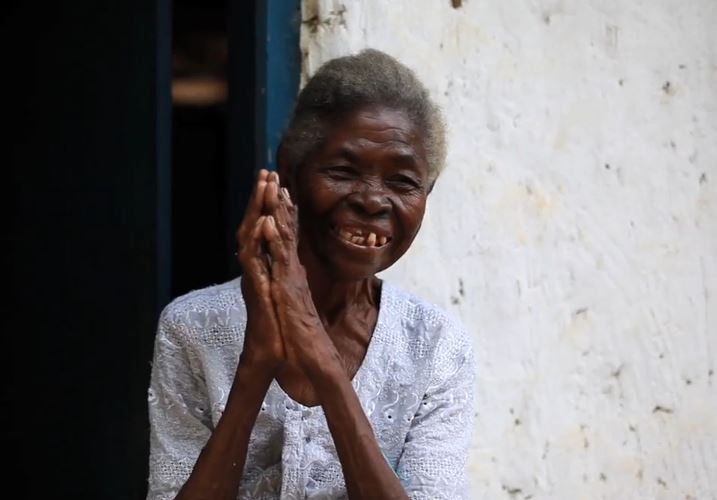Sri Lanka Needs A Ministry Of Diversity & Inclusion – Part III
By Jude Fernando -
Sri Lanka Needs a Ministry of Diversity and Inclusion (Part III/VI)
Language and Multiculturalism: (MID Objective #1)
“Oppressive language does more than represent violence; it is violence; does more than represent the limits of knowledge; it limits knowledge.”― Toni Morrison
“But if thought corrupts language, language can also corrupt thought.”― George Orwell, 1984
First, the Ministry of Inclusion and Diversity (MID) should focus on creating an environment fostering inclusive and non-prejudicial language and communicative practices. It should develop mandatory training programs in language use for all public and private sector institutions. These programs should focus on two areas. One is the practice of language parity, which the Ministry of Languages and Social Integration (MLSI) failed miserably at implementing. The other is prejudice, discrimination and violence (e.g. racism, sexism, and homophobia) in the use of language itself that we don’t realize because how normalized and acceptable they have become for us. This completely escaped the mission of the MLSI.
*Kaffirs of Sri Lanka| Photo by Kannan Arunasalam
In Sri Lankan culture many get away with the use of sexist, racist, and homophobic language in public that in many other countries would require a public apology, the payment of fines, and/or one’s resignation. Such prejudicial utterances are sources of entertainment for the public, and those indulging in them become ‘celebrities,’ as the media finds them enthralling. Government circulars written in Sinhala are frequently sent to non-Sinhala speakers. People are reluctant to take these complaints to law enforcement authorities, who often are not bilingual. The actual meaning of complaints is often distorted in the translation from one language to another. For example, in the plantation areas, women’s complaints about rape are recorded simply as harassment. Thereafter justice is deliberated on the basis of harassment not rape. Women, particularly in socially and politically marginalized communities, are the main victims of such prejudicial use of language. Currently, there is there exist no institutional mechanisms to create an awareness of such abuses of language and hold the perpetrators accountable.
The MSLI’s perspective on the role of language in reconciliation was too simplistic for a multicultural society such as Sri Lanka, and counterproductive to meaningful post-war reconciliation. It viewed the role of language in reconciliation simply in terms of its function as a medium of communication between Tamil and Sinhala communities, rather than in terms of the relationship between the language and identity politics of the country. The MLSI’s interest in language did not extend to the integration of Sinhala and Tamil communities to address the issues of prejudice, discrimination, and violence in the areas of gender and sexuality. The MLSI’s efforts were simply an attempt to improve the Rajapaksa government’s international credibility by demonstrating its commitment to national reconciliation. These efforts did not bring any changes to the majority community’s understanding of the link between language and prejudice and discrimination in the country. Nor these efforts have any meaning to the minorities of the country. The Ministry did not have a positive impact on the communalist political culture that evolved since the making of Sinhala the sole official language of Sri Lanka.
The intention of multiculturalism advocated here is not to make a naïve case for political correctness, as one might suspect. I am fully aware of the abuses of politically correct (PC) language and of the political culture it created. My contention is that these well documented abuses do not negate the importance of political correctness to oppose language that functions as a means of institutionalizing power inequalities in society. Apart from the fact that prejudicial language is demeaning and humiliating, it springs from oppressive ideologies and practices. Language and symbolic structures, as Judith Butler notes, “precede[-] … [our] coming into this world and structure how we act and identify with others and ourselves.” Hence, they are important sources of oppression. The task of multiculturalism is to uncover the oppression, prejudice and violence embodied in language, including those appears to be neutral and faire (e.g. ‘we are all Sri Lankans,’)
Politically correct language is essential to address the atmosphere of hate and disrespect people display towards each other based on race, class, ethnic and sexual identities. Equality and justice cannot be achieved until we change what we say to others: what we say to others mirror and reinforce the inequalities and injustices in the society. In the absence of such multicultural orientation in society’s everyday use of language, subordinate groups (usually minorities discriminated due to their gender, race and sexual orientation) endure such oppression because they are powerless to express dissent (again our culprit is non-PC language, which can derail such resistance with a simple slur). Or, these groups fail to recognize the oppression they face when they consider such language normal or their conditions of oppression have deprived them of access to education. When this translates into action, such language creates a culture of fear that stifles equal participation in decision making. Thus, suppression of PC advocacy is like George Orwell’s thought police, who used psychology and surveillance to eliminate those, capable of the mere thought of challenging established authority.
Paradoxically, PC language can also function as Orwell’s ‘thought police’ when used by PC language proponents as a means of ideological control over others. This is a danger when proponents of PC language claim the high moral ground without recognizing the privileged position from which they condemn others, and do not care to challenge such privilege. Often, these privileges are entrenched by the same power relations that the PC language proponents purport to want to transform. Vocal supporters of PC language often belong to the university educated urban middle class, who have had the privilege of exposure to such language and the time and resources to take personal risks. Often they are vocal about inclusive language, but not an inclusive economy. We also see the persistence of racism and sexism in countries with hypersensitivity to PC language, but no identifiable racists or sexists!
In this respect, political correctness could be part of the problem it aims to solve when its proponents are unwilling go beyond language and be a part of the struggles of the vulnerable groups they claim to defend. Thus, PC language becomes about maintaining social hierarchies and privilege, under the guise of parity, not transformation. We must distinguish between opposition due to limits in social transformation, and vilification due to a desire to further entrenched privileged social positions. Such positions could be leveraged to help those fearful and lacking resources to fight injustice and prejudice. Rather than using the privilege-non privilege binary to strive for PC language, we should initiate a process that brings change on both fronts. PC language is necessary, but not sufficient, to eliminate the power differentials imposed by language, and pave the way to fight other forms of inequality. Sri Lanka is embarrassingly far behind other countries in making PC language a part of everyday practice.
Multiculturalism and ‘political correctness’ are not synonymous. In fact, the latter can obfuscate the true meaning of the former. Language policy within the context of meaningful multiculturalism, aspires to create a culture of communication that is non-violent and utilizes non-discriminatory language; language that is inclusive, pluralistic and non-hierarchical, that promotes broad based solidarity against prejudice and injustice. Multiculturalism advocated here views language not simply as a medium of communication, but in terms of its dynamic role in the creating identities and relationships in the society.
*To be continued….





